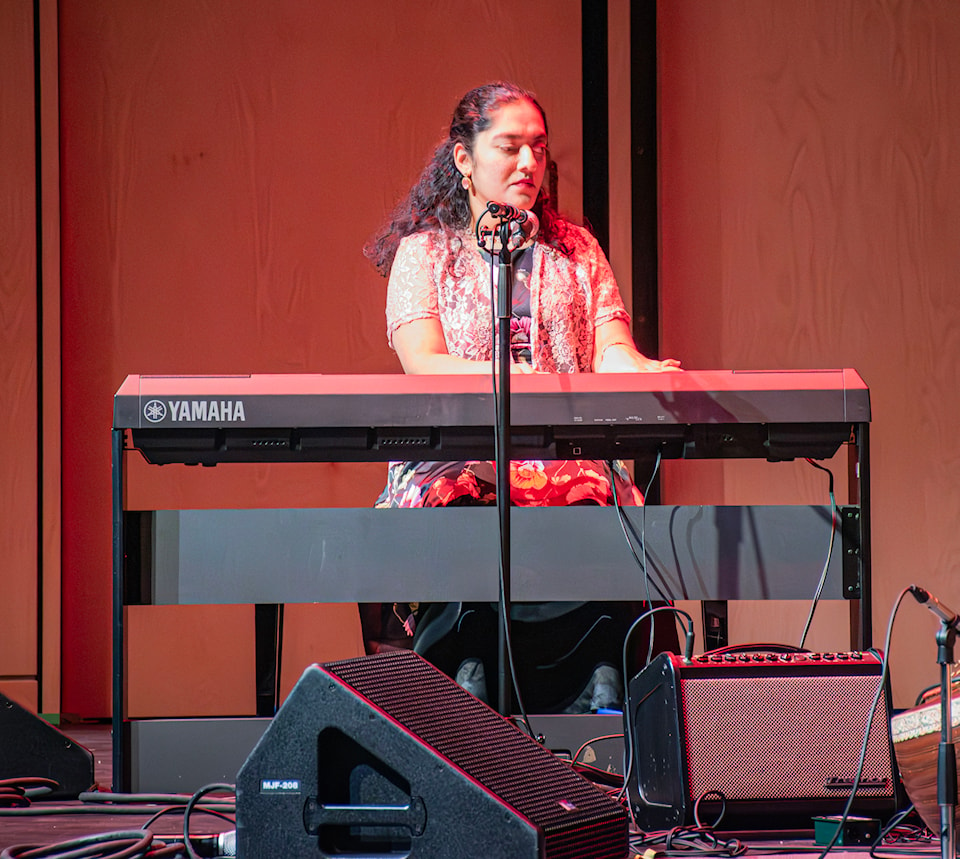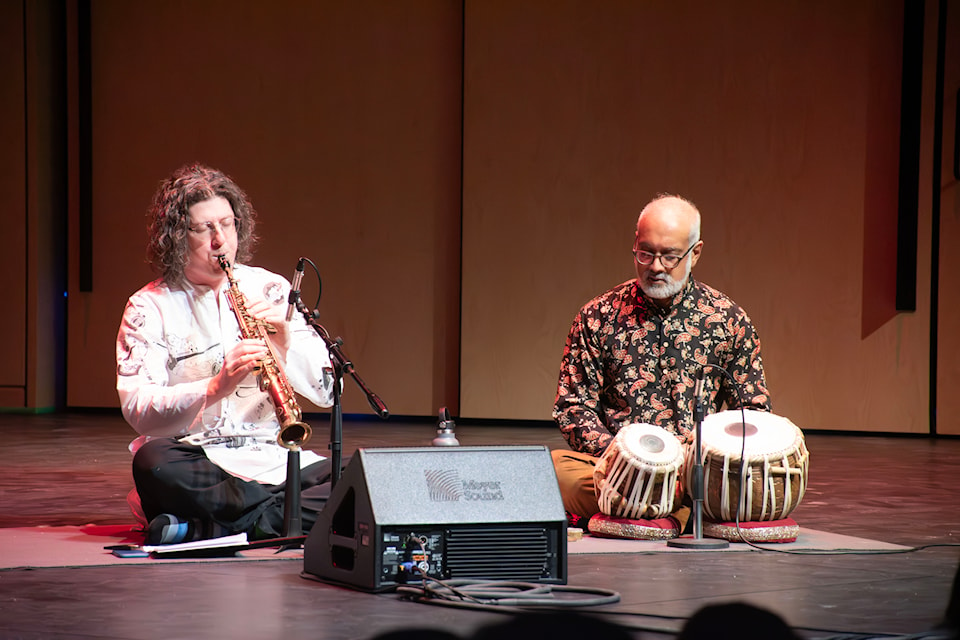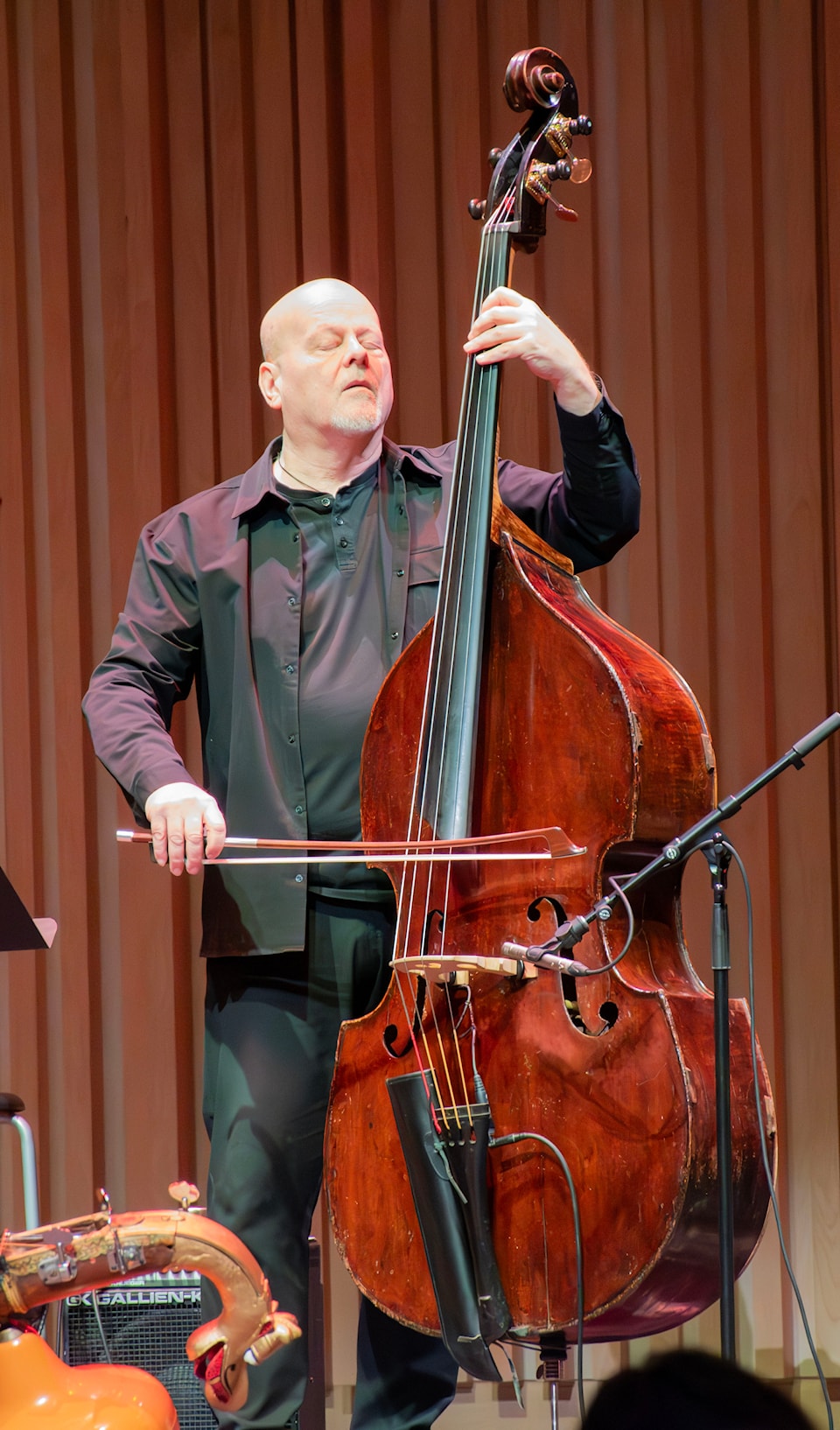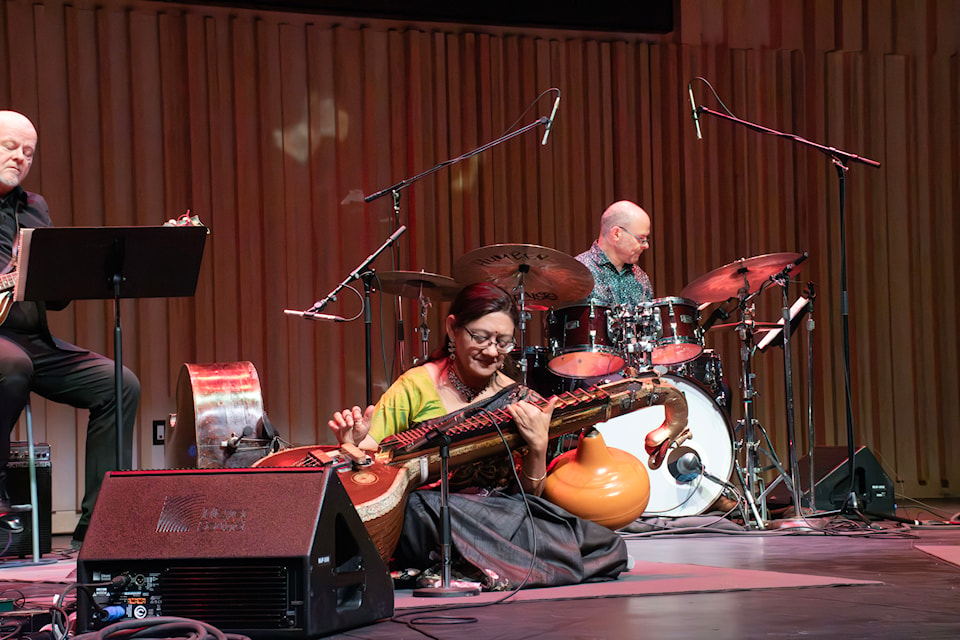The Indian fusion ensemble Swara Squad and Global Grooves touched hearts with their soulful presentation at Humber’s Lakeshore campus on Wednesday.
Humber music student Adithi Baskar, who plays the keyboard, said music has always been a part of her life, she started playing when she was 10 with her mother Radhika as an inspiration, two yeas after losing her vision in an auto accident in India when she was only eight.
“We used to have a lot of CDs at home of (Indian mandolin player) U. Srinivas. He has done a lot of fusion concerts and he also inspired me,” she said.
Adithi said keeping practice hours consistent, listening to a lot of music and exploring is what helps them create this music.
She said she believes everything she is learning at Humber, and her experience, help her to perform and to learn.
Adithi has been going to many of her mother’s concerts and is sensational in the art of taalams (rhythm) which measure musical time in Carnatic music, a style of folk music based in the state of Karnataka, in southwest India.
“She has come so far, she is very dedicated,” Adithi’s mother Radhika said.

Radhika is an accomplished veena player who received a fellowship from the Indian Department of Culture to carry out a research project on rare ragas — the melodic framework for improvisation in Carnatic music.
The ministry describes the veena as the oldest recognized musical instrument in India.
She recorded her first song with a group of friends using the Saraswati raga and a fusion of her composition and it hit 60,000 views on YouTube.
“During the pandemic, was the best time when I started to learn basics of recording through Garage Band and I used to compose and we used to just jam,” Radhika said.
They have released six songs so far out of which one song was professionally recorded with the help of fellow artists and Humber faculty Rich Brown.
Jonathan Kay, a Humber graduate, is well-experienced in Indian classical music after having spent 10 years in the country.
Kay said he was invited to come in today to perform in the first couple of songs after he became known for his interests in Indian classical music.

“After spending all these years in India, I came back and then I was hired as a teacher,” he said.
Kay said he believes his knowledge of north Indian music is a big part of who he is after having interacted so much with Indian culture itself.
“I found myself actually through teaching students whether it one-on-one (saxophone) lessons or an ensemble, trying to re-navigate like bring in eastern ideas to teaching non-eastern music,” he said.
Kay said there are many general but necessary things about music he learned in India which is why he wanted to stay.
“I have found myself as a trans-cultural person, it has changed the way I teach, it’s very interesting to kind of try to navigate the best most efficient way to get to a certain musical place,” he said.





